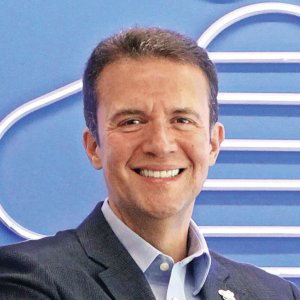The Role of the Expert in Environmental Judgments

STORY INLINE POST
Unfortunately, not all specialists are qualified to participate in a lawsuit. In Mexico, the impartial expert who participates in a trial is commonly called "perito" (proficient) and in this contribution we will see their differences.
Toward the last third of President Ernesto Zedillo's mandate (1998), the then Ministry of the Environment, Natural Resources and Fisheries (SEMARNAT) wanted the environmental impact statements (MIA) of federal jurisdiction to be prepared by impartial experts (peritos).
In accordance with the Regulatory Law of Article 5 of the Constitution on the Exercise of the Professions, professional associations are the only ones authorized to "form lists of impartial experts, by specialties, which will be the only ones that serve officially."
After two years of deliberations, the Regulation of the General Law of Ecological Balance and Environmental Protection in matters of Environmental Impact Assessment (REIA), published in 2000, established that any person could present the MIA, throwing out the expectation of professionalization of Environmental Impact Assessments.
Part of the discussions in those years had to do with the difference between what is meant by a specialist and an impartial expert (perito).
In fact, in the College of Biologists of Mexico, A.C. (National Association of Biologists), we understand an expert to be a specialized person or someone with great knowledge in a subject. In a complementary way, a specialist becomes an impartial expert until he participates in a judicial process as an assistant in the procurement and administration of justice; from which it follows that the aspiring impartial expert must possess, in addition to a solid knowledge in a certain area, a broad capacity for discernment based on the legal framework that he applies to his area of knowledge.
As the years passed, the difference became more evident. My first experience as an impartial expert was assisting the Public Ministry (a kind of prosecutor) in clarifying the facts of a case of environmental risk due to clandestine fuel storage.
The specialist, offered by the person possibly affected by the fuel theft, openly stated that he was against the Criminal Code, since his understanding of the legal norm did not allow him to argue damage to the environment and natural resources, since no contingency had occurred and the property was in a completely urban area. It is worth saying that he never addressed the issue of crimes against environmental management, which finally allowed the MP to start his then preliminary investigation (today called the investigation folder in Mexico).
Given the contradiction represented by rejecting the initial arguments that he supported, the specialist's confusion was about to cause him to be severely sanctioned by the Public Ministry, who had every intention of prosecuting the specialist for false statements.
Over the years, I have had the opportunity to participate in cases in which, the apparently independent experts of the parties involved (defendant, plaintiff, affected third party; sometimes even the official expert), have serious shortcomings regarding the legal framework they intend to use to support their arguments.
To mention another example, I recently participated in a case in which soil and water analyses, commissioned by the plaintiff's specialist, made it possible to substantiate, without a doubt, that it was not even possible to speak of contamination, a situation that even prompted sarcasm from the defendant.
In another recent example, a well-known former government official proposed a questionnaire with almost a hundred questions, which was so exhausting that it did not even allow him to identify that he was wrongly referring to institutions with which he had even collaborated in the recent past. When asked if the expert knew a certain institution (wrong name), the obvious answer should have been, no, I do not know said institution. However, when he pretended to correct the name when answering, the argument was discarded, and more than 10 questions were dropped.
Having a past as a public official, his quote was as expensive as his expertise was inversely useful for the cause.
The questionnaire offered by the parties in conflict and whose answers by the expert constitute the expert evidence, must be formulated jointly between the expert and the trial lawyer. Otherwise, the probability that the expert evidence ends up affecting the person who offers it is very high.
Obviously, we must not forget that a fundamental characteristic of the independent expert is precisely his freedom of argument, which cannot be conditioned on the payment of his fees; in such a case, if he doesn't tell the truth he will be sanctioned by the judicial authority.
I have heard specialists who boast of having won a certain number of expert reports, when the role of the expert is to provide their expert vision, so that the judge can determine the famous legal truth.
An expert neither judges nor determines who is right. That is the job and responsibility of the judge. Consequently, the expert must structure a root-cause analysis, which establishes a logical causal link, in a traceable and repeatable exercise.
In the current Mexico of the Fourth Transformation (4T), the Culture of Legality has been seriously decimated, and judicial processes have increased significantly. Consequently, the need for experts is more than evident, their training being a relevant aspect. Having been a public official is not enough to make an individual a specialist in a given subject, and that experience is not enough to make him or her an expert.
Just as experience is gained by working in a certain area, the expert is formed over the years; hence, the importance of professional associations that maintain accreditation programs for professional practice and certification of their experts.








 By Jesús Enrique Pablo-Dorantes | Environmental Vice President -
Tue, 02/22/2022 - 13:00
By Jesús Enrique Pablo-Dorantes | Environmental Vice President -
Tue, 02/22/2022 - 13:00
















